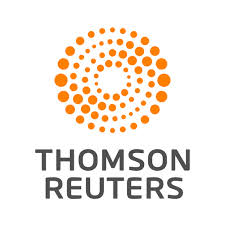- Corporations in APAC remain vulnerable to financial crimes despite high spends on compliance processes
- Better collaboration and improved intelligence are vital to win the fight against financial crime
Mumbai, May 24, 2018 – Almost 50% of large APAC organisations have been victims of fraud, theft, money laundering or other financial crimes, according to one of the most comprehensive surveys of international businesses to date. The first of its kind report, ‘Revealing the True Cost of Financial Crime’, shows that 49% of people questioned admitted that their organisation had suffered at least one incident of financial crime over the past 12 months, with cybercrime and fraud cited as the most common financial crimes. This is despite corporations allocating about 3.1% of their annual spend towards combating financial crime.

The difficulty of tackling financial crime is starkly set out in the survey. Thomson Reuters found that organisations questioned transact with an average of five million customers or clients every year, and most organizations have dealt with over 10,000 third party vendors, suppliers or partners over the last 12 months.
The report highlights that most corporations across the globe do not realize the true cost of financial crime which extends beyond financial and reputational damage to societal evils such as modern day slavery and human trafficking. The Global Estimates of Modern Slavery, produced by the Walk Free Foundation and International Labour Organisation, estimates that over 40 million people today are in modern slavery. According to the Walk Free Foundation’s 2016 Global Slavery Index, five countries – India, China, Pakistan, Bangladesh and Uzbekistan – are responsible for nearly 60% of modern slavery globally
Almost all those surveyed recognized that greater collaboration is vital to winning the war against financial crime, with 94% of companies believing there should be more sharing of financial intelligence, while 93% said that public-private partnerships should be increased and improved.
Julia Walker, Head of Risk & Regtech, APAC, Thomson Reuters said, “Financial crime is not a faceless crime, the most vulnerable in our society are preyed on and exploited by organized crime for profit. Financial institutions are carrying the financial burden collectively spending billions trying to prevent money laundering and the proceeds of illicit activity. Year on year they are seeing greater amounts disappear from their business as result. Thomson Reuters is committed to uncovering the true scale of the challenge, working together with Financial Institutions, governments, and law enforcement agencies to create awareness of the scale of the problem. By gathering better data and intelligence and forming coalitions, we will increase our ability to effectively fight financial crime across the world.”
At Davos this year, the World Economic Forum, Thomson Reuters and Europol launched a coalition to improve awareness of the extent of financial crime, promote more effective information sharing and establish enhanced processes to share best practice. Further information on this coalition is available here.
Below are the key findings for Asia Pacific
- Corporations have about 9000 external relationships (third party vendors/suppliers) out of which , under 40% are screened both at the initial onboarding stage and on an ongoing basis for bribery and corruption, money laundering, fraud, theft, cybercrime,and slave labor/human trafficking
- In the last 12 months, 49% corporations in APAC have been a victim of financial crime. This was despite the fact that, across Asia-Pacific, companies spent 3.1% of turnover over the same period to prevent these crimes in their global operations.
- 75% organizations prefer avoiding risk rather than managing it by not working with high risk vendors
- While 96% and 95% respondents respectively cite cybercrime and bribery & corruption as significant financial crimes, very few believe slavery and human trafficking to be results of financial crime
- 89% respondents struggle to educate and influence colleagues on bribery and corruption – only 50% fully implement workflow and process reports and fully train and educate their customers, third party vendors, suppliers or partners
- 96% of respondents across the region support the idea of sharing compliance best practice by companies, with many in favor of collaboration in the ongoing fight against all forms of financial crime. Undoubtedly, though, the first step to combating this global scourge remains lifting the lid on its true extent, impact and cost – both economic and humanitarian.
Thomson Reuters commissioned the survey of more than 2,300 senior business leaders in large companies to shine a light on how pervasive such crimes have become across the world.
Thomson Reuters
Thomson Reuters is the world’s leading source of news and information for professional markets. Our customers rely on us to deliver the intelligence, technology and expertise they need to find trusted answers. The business has operated in more than 100 countries for more than 100 years. Thomson Reuters shares are listed on the Toronto and New York Stock Exchanges. For more information, visit www.thomsonreuters.com.
